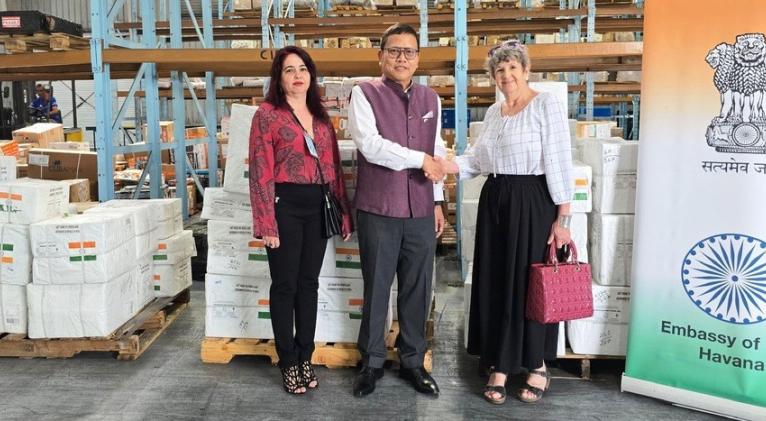Reconciliation or fragmentation, what lies ahead for war-ravaged Sudan?
especiales

Over one million people have fled Sudan and arrived in neighbouring South Sudan, setting a grim new record in the ongoing humanitarian crisis ignited by nearly two years of conflict. This is according to new data released by the International Organisation for Migration (IOM) and the United Nations Refugee Agency (UNHCR).
For the past 21 months, a raging war between the paramilitary Rapid Support Forces (RSF) and the Sudanese Armed Forces (SAF) has also forced around 11.4million to become internally displaced.
Yet, for those who have crossed the border, safety is not guaranteed. Just last week, riots erupted in South Sudan’s capital, Juba, after the reported killings of South Sudanese nationals in Sudan's Al-Jazirah region. The unrest resulted in the deaths of least 16 Sudanese refugees, highlighting the regional volatility stemming from Sudan’s internal conflict.
The war in Sudan is far more than a simple battle between two armed factions. It is a complex and multifaceted struggle, deeply entrenched in internal rivalries and exacerbated by external interference.
Experts foresee three possible outcomes for Sudan: fragile reconciliation, territorial fragmentation, or a decisive military victory by the Sudanese army.
Prospects for reconciliation
In a country ravaged by violence, reconciliation between the SAF and RSF seems like a distant option. Both factions have been locked in intense conflict since April 2023, when clashes erupted between the military and paramilitary forces.
For reconciliation to be possible, both parties would need to shift their strategic interests, while substantial international pressure and effective mediation would be required.
However, the violent competition for resources and power, along with entrenched rivalries, renders a peaceful resolution improbable in the near term.
"The mission of various countries to contribute to peace is being hindered by the motivations of some external actors who seek to benefit from the continuation of the conflict,” says Dr Ensar Kucukaltan, Director of the International Human Academy (IHA), a think tank based in Istanbul.
The RSF, for instance, enjoys considerable support from the UAE, which Kucukaltan identifies as seeking to expand its influence in Sudan.“The complexity of the conflict and the deep-seated rivalry between the SAF and RSF make a near-term resolution unlikely,” he tells TRT World.
A risk of fragmentation?
In another scenario which is less likely but still plausible, Sudan faces the risk of territorial fragmentation. This outcome could lead to the involvement of additional groups, including civilians, being drawn into the conflict.
Nowhere is this more evident than in Darfur, a region historically scarred by violence and now under near-total RSF control.
The group’s aggressive expansion into previously peaceful areas has ignited fresh tensions, pushing local communities to form self-defense forces in response.
“The RSF’s advances in Darfur and Al-Jazirah state have escalated regional tensions,” Kucukaltan notes, warning that these dynamics could lead to broader conflict.
“It is crucial to remember the significant political role that tribes play in Sudan. With the army, the RSF (formerly the Janjaweed), and tribal factions as key actors in the conflict, it appears unlikely that the fighting will cease anytime soon.”
“This isn’t just a two-sided war,” Kucukaltan adds.
It’s a fight for influence and survival among multiple actors.
A military victory by the SAF?
Despite its challenges, the SAF has recently made gains, recapturing strategic territories and showcasing its determination to defeat the RSF.
Earlier this month, Sudan's army reclaimed control of Wad Madani, a strategically significant city located approximately 200 kilometres southeast of the capital Khartoum, dealing a major setback to the paramilitary RSF.
"Our armed forces, supported by allied forces and popular resistance (volunteers), have taken full control of the town of Tambul," the army said in a statement.
However, a decisive military victory seems far from certain.
The RSF still controls large parts of Al-Jazirah except for Wad Madani, Tambul and the city of Al-Manaqil and its surrounding regions, extending south to Sennar state’s border and westward to White Nile state’s boundary.
Kucukaltan points out that the RSF is buoyed by substantial external support, including financial and material backing from the UAE and less-publicised actors.
“Hemetti’s forces remain resilient due to this external support,” Kucukaltan observes, emphasising that the RSF’s alliances have allowed it to withstand the SAF offensives.
Sudan’s strategic importance, stretching from the Red Sea to the Middle East, ensures that major powers like the US, Russia, Israel, and Egypt remain deeply involved.
“Sudan's crisis is not Sudan's alone,” Kucukaltan says.
“It’s a regional and international issue, with various actors pursuing their own interests.”
This international entanglement complicates the SAF’s path to an outright victory, even as it seeks to consolidate control.
No end in sight
Sudan’s civil war persists because neither side can claim a decisive victory, and there are no incentives for a negotiated solution as it’s a multifaceted crisis shaped by internal rivalries and external meddling.
The prospect of reconciliation, while ideal, remains distant amidst entrenched divisions and competing interests. In this state of uncertainty, it is the civilian population that bears the brunt.
The toll of the world’s forgotten civil war on the Sudanese people is already devastating and continues to rise, with no end in sight. Since the conflict began in mid-April 2023, more than 20,000 people have been killed, and 14 million displaced, according to the UN and local authorities.
Research from the US universities, however, estimates the death toll at around 130,000, underscoring the human cost of war that shows no sign of abating.














Add new comment